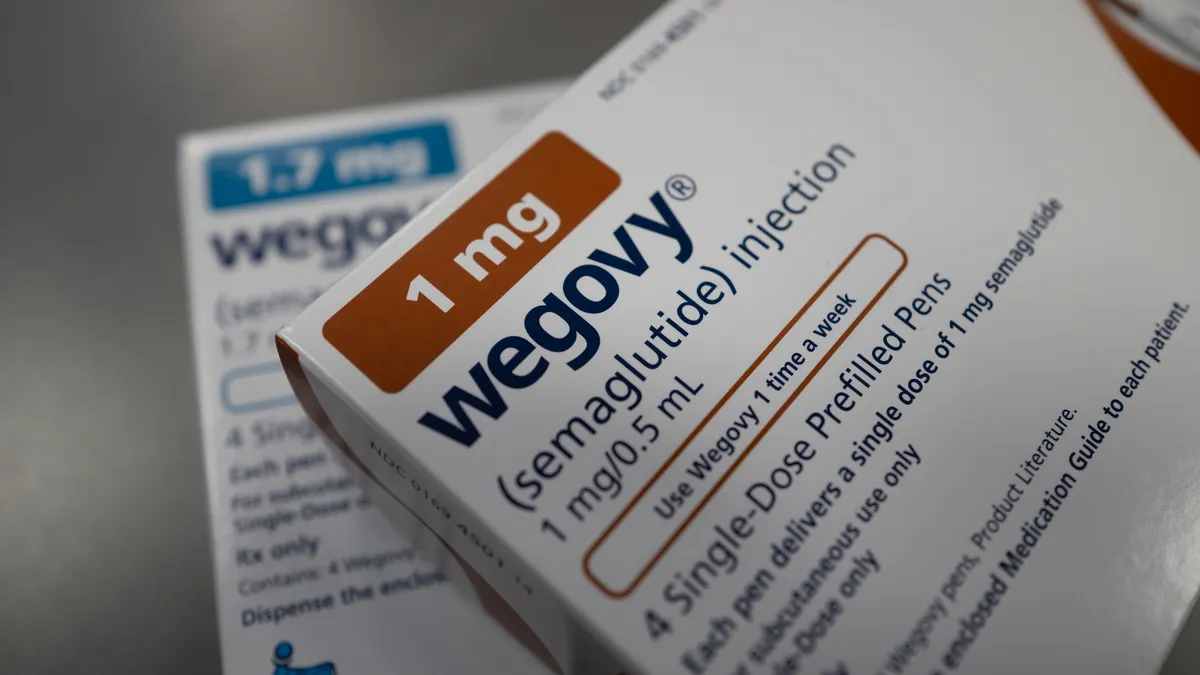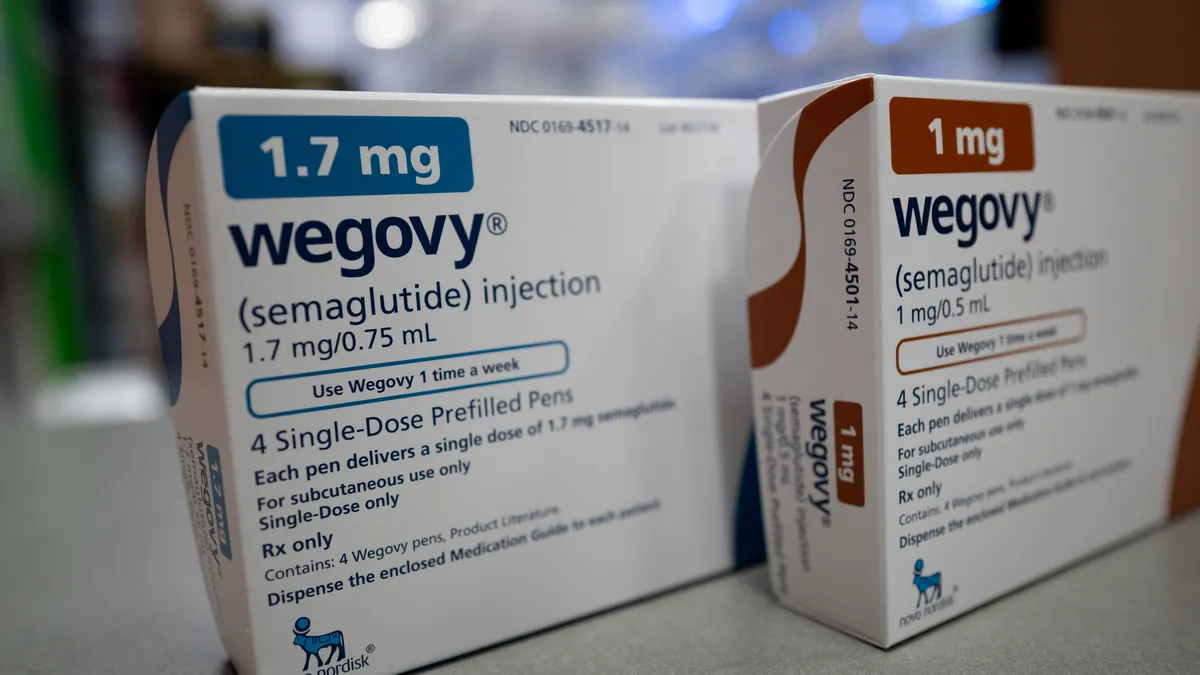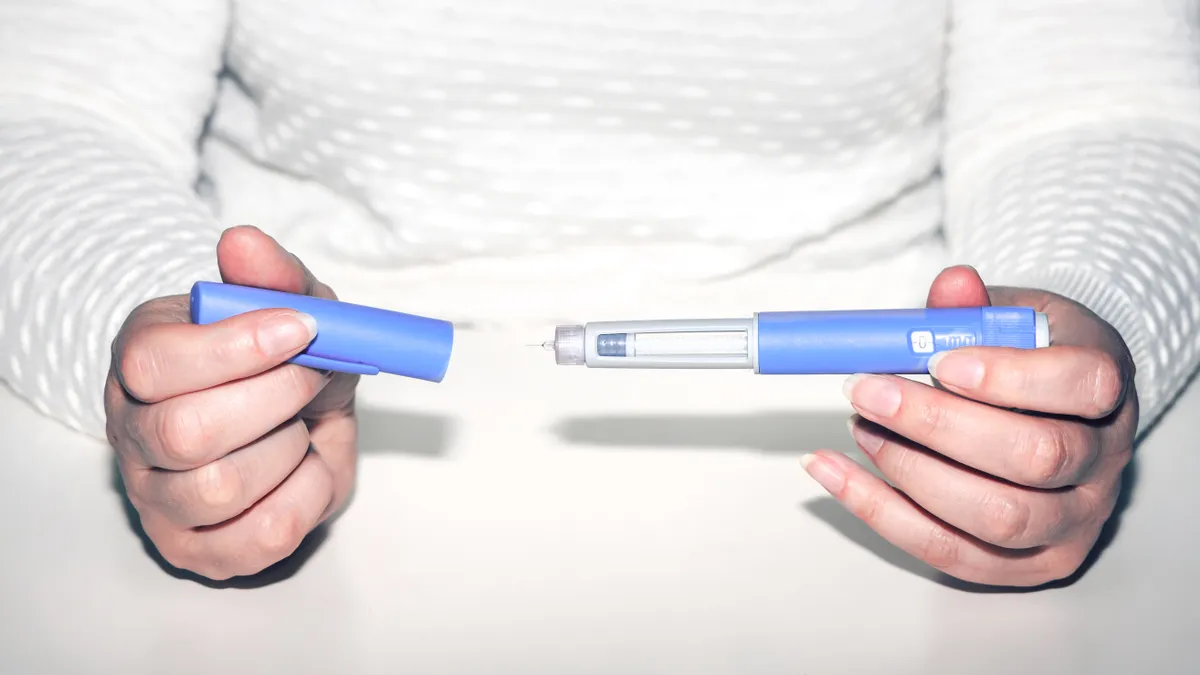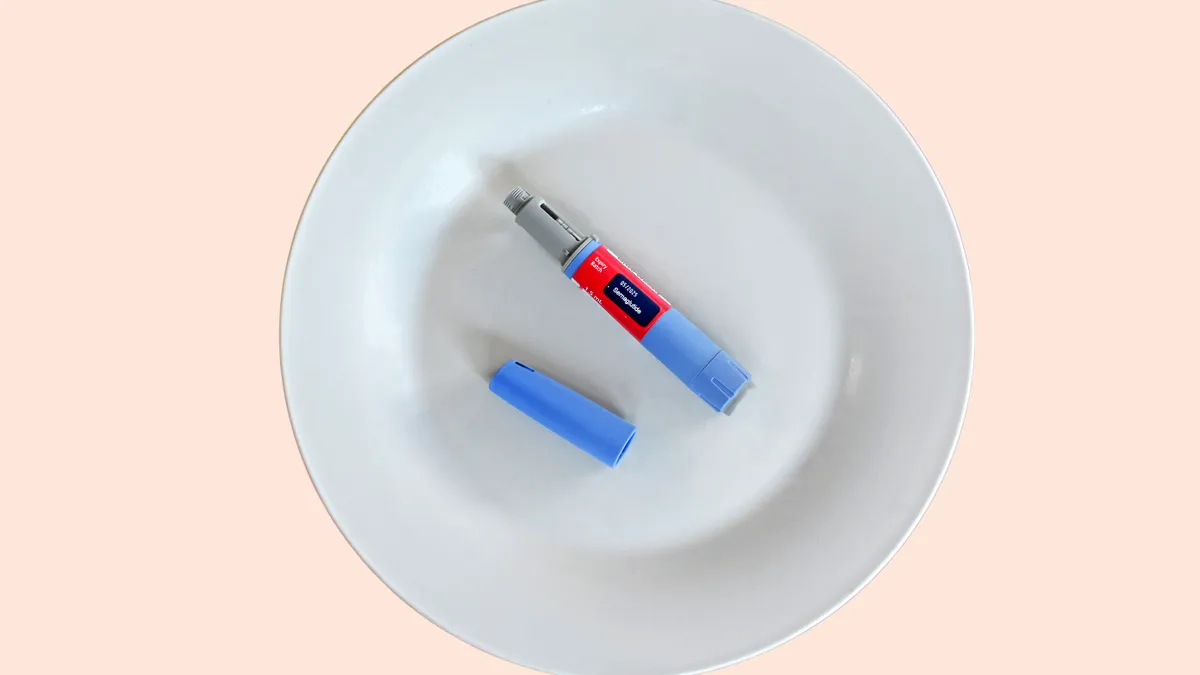Dive Brief:
- Novo Nordisk’s experimental drug CagriSema helped people who are overweight or obese and have diabetes lose about 14% of their body weight over 68 weeks, or 11 percentage points more than those given placebo, the company said Monday.
- The Danish company aims to position CagriSema as a more potent successor to its popular obesity drug Wegovy, which recorded sales of 58 billion kroner, or about $8.4 billion, in 2024. But earlier trial results in people without diabetes also fell short of expectations, casting doubt on CagriSema’s potential.
- Novo Nordisk shares fell nearly 10% following the announcement, continuing a monthslong stock slide fueled by concerns over the company’s competitive standing versus top rival Eli Lilly. The company has already outlined plans for a new Phase 3 trial to test whether CagriSema can generate greater weight loss at higher doses.
Dive Insight:
Novo had an early lead on Lilly, with Wegovy reaching market before Lilly’s rival Zepbound and, at least so far, securing broader insurance coverage.
But that early advantage may be dissipating. Zepbound drives greater weight loss than Wegovy, giving it an edge commercially. And both companies have made steady progress shoring up their drug supply.
Novo has hoped CagriSema might answer Lilly’s competitive threat. The drug combines semaglutide, the main ingredient in Wegovy, with a second drug called cagrilintide. Executives believed doing so might spur greater weight loss than Zepbound, which works differently.
So far in testing, CagriSema appears to be an improvement on Wegovy alone. But it hasn’t lived up to the expectations of investors or company executives. Novo executives had set a target of 25% weight loss for a Phase 3 trial in people with obesity but not diabetes, a mark it missed in December. In a smaller Phase 2 trial in diabetics, CagriSema was associated with 16% weight loss after 32 weeks, raising expectations it might have bigger benefits in a longer Phase 3 study.
“We had believed that adults living with both overweight or obesity and type 2 diabetes represent the patient segment for which CagriSema has the best chance to outperform Zepbound,” wrote William Blair analyst Andy Hsieh, in a Monday note to clients. “Therefore, we believe today’s results are especially disappointing.”
Selling CagriSema, if approved, may prove to be difficult, too. While Zepbound has a single main ingredient, CagriSema’s two components can’t be dissolved together, requiring them to be manufactured separately and then delivered with a dual-chambered pen. Novo’s “future manufacturing capacity is TBD,” wrote Leerink Partners analyst David Risinger, in a separate note.
Hsieh added that the result may prove Zepbound’s mechanism of action — stimulating the gut hormones GLP-1 and GIP — yields better results. That, in turn, could boost other developers working on similar approaches, such as Amgen, Roche and Viking Therapeutics.
















































